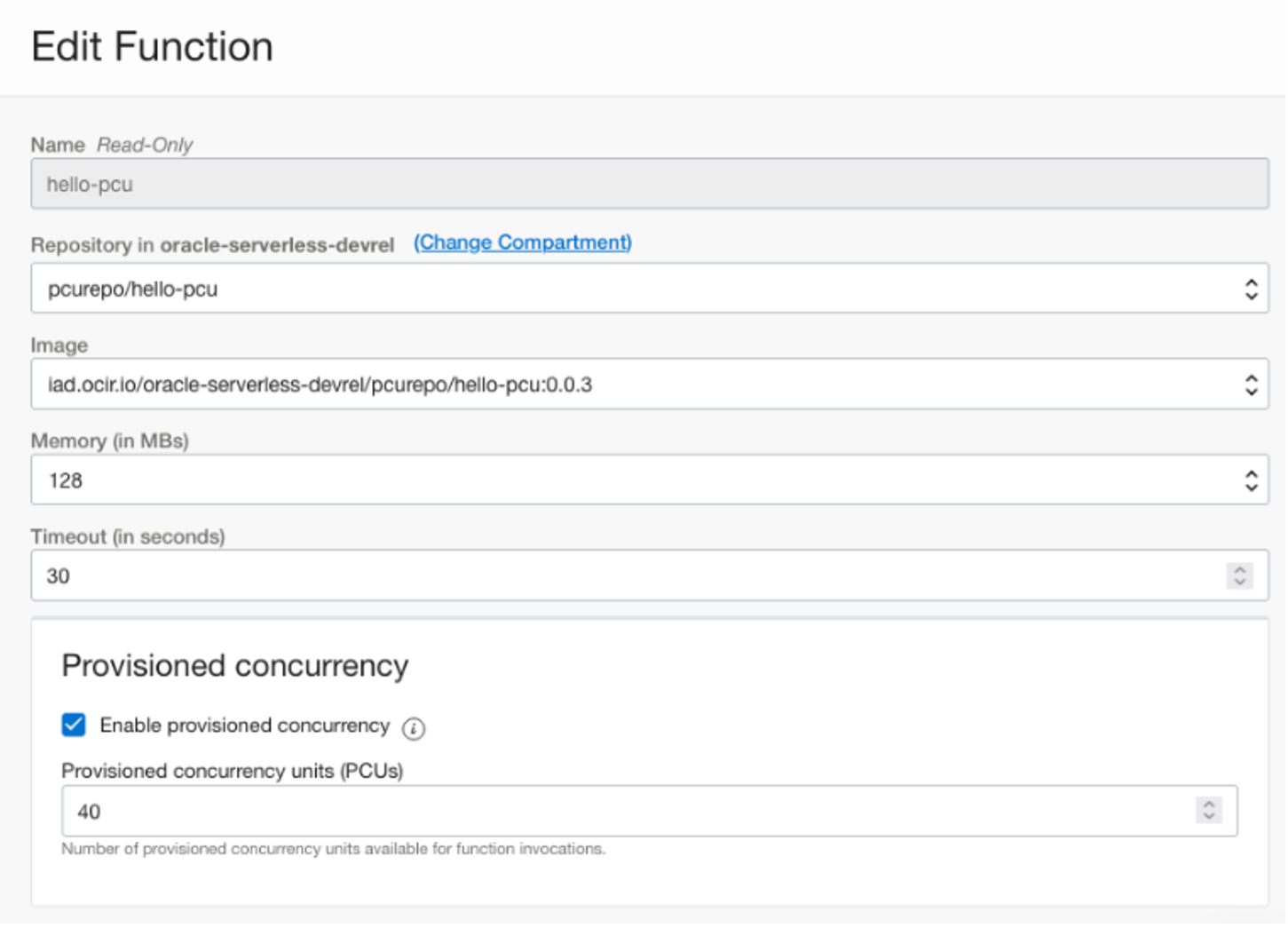We’re excited to announce the release of provisioned concurrency for Oracle Functions. Provisioned concurrency enables Oracle Cloud Infrastructure (OCI) users to specify the number of function executions to be ready to invoke, so they can ensure consistent subsecond latencies.
How the Functions service works
Oracle Functions is an OCI serverless service that lets developers create, run, and scale applications without managing any infrastructure. Customers have found it useful to build applications on Oracle Functions to benefit from a managed solution that automatically scales, runs based on demand, and has no management overhead. You can use Functions to create events-based applications that enforce corporate policies, extract-transform-load (ETL), video or image processing, log ingestion, machine learning applications, mobile or web backends, or extending of existing applications.
Oracle Functions creates the function running environment when invoked for the first time or after a period of inactivity. This preparation process involves setting up the infrastructure, such as compute, network, and security, and starting the containerized application, resulting in a few seconds of delay handling the running of the function’s logic. Customers using Oracle Functions for latency-sensitive applications, like a mobile or web application backends, have told us that they want more control over the latency and performance of a function.
Provisioned concurrency
Provisioned concurrency enables you to specify the number of function invocations to be handled immediately. Oracle Functions then prepares the running environment ahead of time and waits for the run, ensuring a consistent low latency up to the specified number of parallel invocations, regardless of the function size.
To start using provisioned concurrency, you can use the Oracle Cloud Console, CLI, or software development kit (SDK) to turn on provisioned concurrency and specify the number of units when they create or edit a function.

You can choose to modify the number of units and enable or disable provisioned concurrency at any point. Provisioned concurrency units that are enabled but unused do incur charges. Provisioned concurrency that’s used to run Functions doesn’t incur any extra charge.
Want to know more?
You can learn more about provisioned concurrency by visiting the documentation. To try Oracle Cloud Infrastructure Functions service and the new provisioned concurrency capabilities, create your Always Free subscription and start creating Functions.
